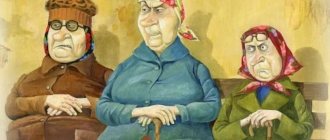- Essays
- 9th grade
/
Cowardice is the lack of spiritual strength necessary for certain actions or decisions, to maintain a decisive point of view in an extreme situation and emotional fear.
Everyone is wary, but those in whom this trait is dominant are called cowards. There is a cautious and disdainful attitude towards such people in society, therefore they cannot be trusted. For the sake of their own safety and profit, such types resort to lies and sabotage; they will abandon the weak and helpless in trouble.
Many believe that cowardice is the most terrible offense that descends to the level of an animal, but among lions, wolves, elephants, there is a tendency to protect their relatives, and not to run away weak-willed. Cowardice is a problem exclusively for humans, because there is no such thing in the manifestations of the animal world. The mechanism regulating the existence of the species forces animals, approaching danger, to first notify the pack, despite the risk to their own lives.
The Problem of Human Cowardice
Do you know anyone who would be called a coward? What are the reasons for describing it this way? Can you justify this belief? At work, in our family or in our circle of friends, we know someone close to us who can be called fearful. Cowardice is one of the main human traits. Although it is often assessed as something negative, we forget that in some cases it is an adaptive strategy.
We can all look back and find many moments during which we experienced doubt. We may wonder what the outcome would be if we acted differently in a given situation. Perhaps, analyzing them, we see that cowardice was often hidden behind these doubts.
Cowardice goes hand in hand with fear and conformity. They are inseparable. What if this is not fear or cowardice, but simply a desire for convenience? You can be a coward on different levels: emotional, behavioral, cognitive.
What makes us cowards?
Cowardice manifests itself most obviously in behavior. In addition to what we feel or think, there are times when the situation requires us to act, but we do not do it. This is a reflection of lack of response, paralysis, insecurity. You can create a thousand excuses. This is the most famous visible form of cowardice.
This is easy to recognize (both in others and in ourselves) in moments when we are ashamed to say “I love you,” “leave me alone,” “no, it’s your job, do it yourself.” How many times have you ignored unhappy thoughts instead of fighting them? We can also be cowards in our minds. Perhaps there is an idea, situation, or even memory that bothers or frightens us, but instead of spending time processing it, we try to work around it. When others hint at this, we avoid it, change the subject, or show forced indifference.
Finally, there is such a thing as an emotional coward. This is a person who decides not to show feelings so as not to suffer. Sees emotions as a complication and the solution is to run away from them.
Situations
But during the war there was no time to discuss this topic; the attitude towards the fearful was harsh and unambiguous, right up to execution. In war conditions, due to the instability of the internal forces of one individual, millions of people and even the entire country could lose their lives and freedom. The punishment for timidity exists on all continents, regardless of whether the country is technologically advanced in development or a tribe deprived of contact with civilization.
The guy who didn't protect his girlfriend from bullies and ran away. A friend who refused to help in trouble. Just a neighbor not trying to help during a fire. Do you want to be around such people and trust them? Probably not.
But there are differences between cowardice and caution. Attentiveness, accuracy, waiting for the right moment - has nothing to do with stopped activity. Cowardice does not want to look closely and look for solutions, is unable to wait or be attentive, it is an instinctive feeling that makes a person flee when the source of fear approaches.
Reasoning 2
A coward is a characteristic of a person that we have heard since childhood. And since childhood we know that being a coward is bad. But what does this really mean? It is believed that if you give up in the face of danger in a situation where you should not do this, this is a manifestation of cowardice. It is important not to confuse cowardice with caution. A cautious person will avoid dangers when he does not have to go through them. But cowardice will manifest itself precisely when a person is obliged to look these very dangers in the face. Not going into a dark deserted alley for fear of running into hooligans there is caution. Leaving a friend in the hands of hooligans, so as not to become their victim yourself, is already cowardice.
The dangers that a person may be afraid of in life do not always look so literal. Often we are dealing with completely unobvious threats and the same debt. Take responsibility for the wrongdoing, defend your truth, admit your mistake, ask for forgiveness. These dangers do not have dire consequences, but they frighten a person in a different way. Nobody wants to be laughed at, reproached or condemned. This echoes the ancient fear of the caveman to be expelled from society, to be left alone with the incomprehensible and frightening world of nature. It is difficult for a person to survive alone. He needs to be close to his own kind, enjoy their favor and approval, and avoid situations where he would be considered weak.
Gandhi is widely known to have said that violence is better than cowardice. I beg to differ with this outstanding man. Of course, because of cowardice, terrible things often happen in our world, but it seems to me that this is precisely the vice that is easiest to forgive. Man is born neither brave nor cowardly. But he can become like this thanks to his upbringing and life experience. It is difficult to judge a cowardly person for his actions without taking into account all the circumstances of his past. In addition, those who once chickened out can learn a very valuable life lesson. And next time the person can act differently.
The law is also lax about cowardice and its manifestations. No one punishes a friend who abandoned a comrade in trouble out of fear for his life and health. The only exceptions are cases when a cowardly person is bound by a voluntarily assumed professional duty - for example, he serves in the police, works as a doctor, or serves in the army. If a policeman is afraid to stand up for a crime victim and sits out in safety, or a doctor is afraid to make a mistake during an operation that will affect his reputation or career, and finally, if a soldier defending his homeland runs away from the battlefield, this will affect not only the coward himself and those , whom he did not protect. This will undermine the very principles of public safety, which, of course, is unacceptable.
"Eugene Onegin". Public opinion
Our favorite work by the brilliant Russian poet Alexander Sergeevich Pushkin describes a similar situation in which the main character Eugene Onegin finds himself. He receives a challenge to a duel from Vladimir Lensky, towards whom he does not feel any hostility, but, fearing condemnation from society, accepts the challenge. For fear of being branded a coward, Onegin becomes one.
The meaning of the word “cowardice” in this situation can be represented as the inability to do the right thing under fear of public opinion. In contrast, we can use as an example the act of Tatyana Larina, who, unafraid of the opinion of society, herself declares her love to Onegin. And years later she again confesses her love to him, but does the right thing, thereby proving that loyalty is not an empty phrase for her.
Essay What is cowardice
The word cowardice has some negative connotations. This word means fear of certain circumstances and refusal to fight them. Often such people are called cowards, they are disliked in society, they are criticized and humiliated. Cowards rarely reach great heights in life because they are afraid of risky actions and steps. The negative attitude towards cowards is not at all accidental. After all, cowardice and inaction can sometimes cause terrible events. For example, during the war, our country withstood the onslaught of a fierce enemy and won victory only thanks to brave people. And if there were many cowards, then the Soviet people would simply be enslaved by the invaders, and we would simply not be in this world now. Or, for example, a girl who cannot swim fell into the river. A brave person, of course, will run to help, and without hesitation, will provide this help. And the coward will remain standing, thereby unwittingly being the culprit of the accident. Of course, one cannot blame him for this, but everyone will certainly do it, it just so happens.
Every person is afraid of something. Even as children, we are afraid of dogs or the dark. But life forces us to fight our fears and overcome them. If fear is a completely normal phenomenon, thanks to which we recognize the problem and fight it. Cowardice is a negative phenomenon, aimed at refusing to solve problems, ignoring them and avoiding them.
In literature, as in life, there are examples of people who were overcome by cowardice and even took their lives. For example, the hero of A.P. Chekhov’s story “The Death of an Official” is Chervyakov. He is very afraid of higher officials. Having sneezed on the head of one of them, he was so afraid of his anger that he could not live any further. This is an example of boundless stupidity and cowardice. Evgeny Onegin, the hero of Pushkin’s novel, is also punished by life for his cowardice. So that society does not condemn him, he decides to duel with a friend and kills him. Then he is doomed to suffer from remorse for the rest of his life. Bulgakov in his novel also shows cowardice as a vice. Pontius Pilate, fearing to lose his career, passes an unjust verdict, as a result of which an innocent man was executed.
But still, a small amount of fear should be present in a person. After all, thoughtlessly rushing headlong into the pool is also wrong. The instinct of self-preservation must be present. But do not confuse reasonable fear with undignified cowardice.
“Fathers and Sons”, “Garnet Bracelet”. Reckless courage and desperate cowardice
Writers often address this topic. You can find many examples of this in the literature. Let's take a look at some of them. Everyone knows Turgenev’s work “Fathers and Sons” from school. Using the example of Bazarov’s character, let’s consider the situation. The duel that took place, the reason for which was a kiss, describes the behavior and state of the heroes, for whom honor is not an empty phrase. Overcoming fear, the heroes defend their beliefs, although one kiss should not endanger a person’s life. Desperate cowardice and reckless courage became counterbalances to each other.
There is another remarkable example of cowardice in Kuprin’s work “The Garnet Bracelet”. The hero of the story is a petty official who is selflessly in love with a woman. But the fear of rejection prevents him from opening up to her. The heroine, in turn, fearing shocks in love and preferring a calm marriage, makes a choice in favor of another man. And only after the death of the man in love with her, she realizes that the true love in her life has passed her by.
Essay with mayors from literature
Cowardice is a negative human trait. A person's inability to make decisions and act. Fear, weakness and betrayal, three synonyms for the word cowardice.
Fear is the cause of cowardice. When a person struggles with something, he chooses to step over and overcome this fear or do nothing, that is, become a coward. Fear serves as the basis for the manifestation of weakness or strength. If a person is strong in spirit, he will be able to overcome his fear. If a person is weak, he will become cowardly and succumb to fear. The consequence of cowardice is betrayal. With his cowardice, a person can betray both himself and other people.
We can observe examples of cowardice in literature. Very often, Russian classics compare cowardice with betrayal during the war. So, for example, in A.S. Pushkin’s work “The Captain’s Daughter” Where, during the siege of the Belgorod fortress, Shvabrin, fearing for his life, goes over to the side of the enemy. A manifestation of cowardice, which is compared with betrayal of the homeland. Shvabrin serves as an example of a weak person who betrays his homeland, friends, comrades, fearing for his life.
A similar example is given to us by M.A. Sholokhov. In the work “The Fate of a Man,” Kryzhnev, experiencing fear of death, shows cowardice. Subsequently, he betrays his comrades and friends, passing them off as German soldiers. Fearing death, Kryzhnev became cowardly, showing weakness, he could not act with dignity. Thinking only about himself and his own benefit, Kryzhnev appears before us as a weak, cowardly person. As we see, there are examples of cowardice in literature.
It is no coincidence that I gave an example when cowardice manifested itself in war and was equated with betrayal.
On the eve of the anniversary of the victory in the Great Patriotic War, I would like to say a huge thank you to our veterans. They are examples of strong people. They did not cower in the face of danger, they did not betray their homeland, no matter what. Thinking about the younger generation, about our future, they committed heroic deeds and sacrificed themselves. Thank you for everything!
In conclusion, I would like to say once again that cowardice is a negative human trait. It shows us how weak a person is. Shows that a person cannot overcome his fear. The consequences of cowardice can be dire. This is betrayal. This is a lie. Sometimes cowardice can cost other people's lives
Definition of this term
The concept of “cowardice” is understood as a person’s refusal to take any action or deed in a certain situation, the reason for which is fear. Such human behavior is considered a negative character trait. The word “cowardice” comes from the noun coward (in the Proto-Slavic language it means “one who shakes”). The words coward or cowardly are also its derivatives.
The main cause of cowardice is fear. It should not be confused with caution and must be distinguished from excessive caution. Caution is a human quality that means a particularly attentive attitude, increased vigilance. This is the ability to think several steps ahead, anticipating the consequences of your actions and the possible reactions of people. After all, the goal of caution is the successful implementation of planned plans, which is fundamentally inconsistent with cowardice.
Reasoning Cowardice is the mother of cruelty
There are obvious and hidden fears. If in the first case you can still somehow help, then in the case of hidden ones, things are somewhat more complicated. By entering into a dialogue with a fearful person, we penetrate into his inner world, trying to see the mental ulcer - cowardice. It can be caused by various factors; it cannot always be justified. The fear of admitting to oneself cowardice can be so poisonous that it affects kindness and in small steps approaches absolute hard-heartedness and indifference.
Very often, selfishness and dissatisfaction with one’s own life block the path to humanity. Cowardice gives rise to cruelty and cleverly manipulates it. If the predisposition to cowardice is high, the likelihood of making life mistakes doubles. Constant fear fetters attention only on oneself; a person is immersed in this state, and either does not want to get out of it or is no longer able to. What is the role of cowardice? That's right, destructive. For example, you need to tell the truth, but instead lies and slander are poured out - an unjustly accused person is morally destroyed. Cowardly people are capable of mercilessly ruining the destinies of innocent people; common sense is covered in a web of cruelty.
There is not the slightest hint of nobility in cowardice; there is nowhere for it to settle. Instead of solving problems and talking them through, people often harbor grievances and carry this burden for years. Cowardice whispers the insidious conditions of cruelty, and it obediently fulfills them. This cannot be said to be a comfortable state. Unforgiven grievances often grow into huge trees, with the fruits of cruelty and hatred on every branch. Why is this happening? Some people are not able to analyze and let go of grievances in a timely manner, they are afraid of being wrong, therefore, in their opinion, it is much easier not to understand the situation, but simply to accumulate negativity and hurt souls.
Cowardice does not help, it only knows how to harm, and looks quite pitiful, and when combined with cruelty, it is extremely dangerous. Therefore, you need to listen to yourself very carefully and make a choice towards courage, because this is the only way to defeat cowardice and drive it out of your life forever.
Other topics: ← Responsibility↑ 9th gradeKindness →
`
Synonyms. Meaning and examples
First of all, it should be noted that synonyms are words that are distinguishable by spelling and sound, but belong to the same part of speech and have a similar lexical meaning. In our case, the words timidity, fearfulness, and indecision can be considered synonyms for the word cowardice. The line between all these words is quite thin. To understand whether you are a coward or not, you need to get into an extreme situation. And if, overcoming your fear, you are able to move forward for some good purpose, you are not a coward, but a worthy person. Today it has been proven that fear can be corrected. A coward can be rehabilitated.
Popular writings
- What is Life Experience Essay
Each of us has heard the phrase “life experience” more than once, but have we ever thought about what it means? Practical skills? Vivid memories? Knowledge about the world around us? - Essay A photograph in which I am not, according to Astafiev’s story
In the hands of an old photo, the corners of which are broken, the faces have turned yellow. But memories of the distant 30s come to mind. And everything seemed to happen yesterday. - Essay Generosity and kindness
What is the difference between kindness and generosity? Many people confuse these two qualities, since they are based on a sincere desire to help another person and support them in a difficult situation.
Quotes. Wisdom of life
An example of cowardice is the quote from Gilbert Keith Chesterton's "Train Station Prehistoric" which reads: "Noble men are vertebrates: they are soft above, but deep down they are hard. Mollusks are the modern cowards: they are hard on the outside, but soft on the inside.”
Or this wise quote from L.N. Tolstoy: “A cowardly friend is more terrible than an enemy, for you fear the enemy, but rely on your friend.” Shaw Bernard once said the following words on this occasion: “A person can find any reason to justify his actions, except for one, and for his crimes he also finds any justification, except for one, for his safety - any reason, except for one, and this alone is his cowardice.”
There is another very beautiful saying that I would like to cite here as an example: “A warrior dies once and always with dignity, but a coward dies thousands of times, every time he is afraid, and he always dies like a cowardly jackal.”






